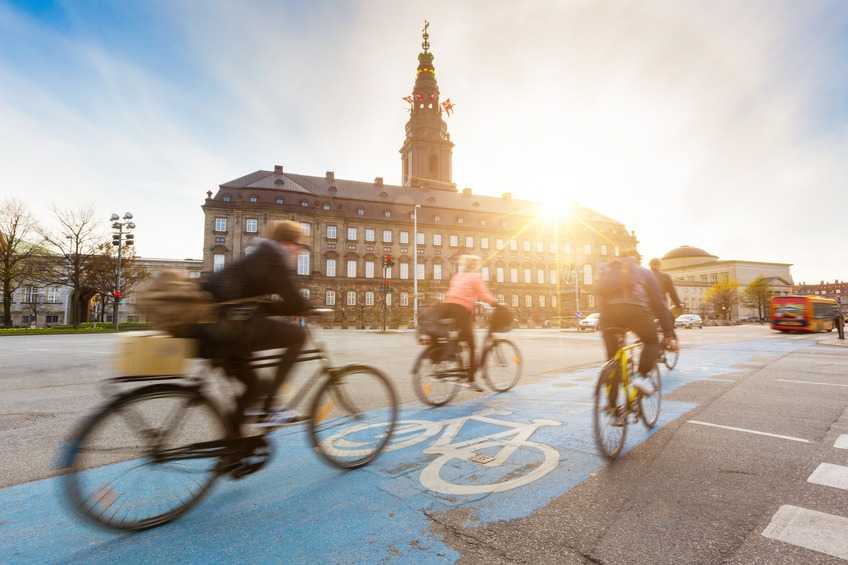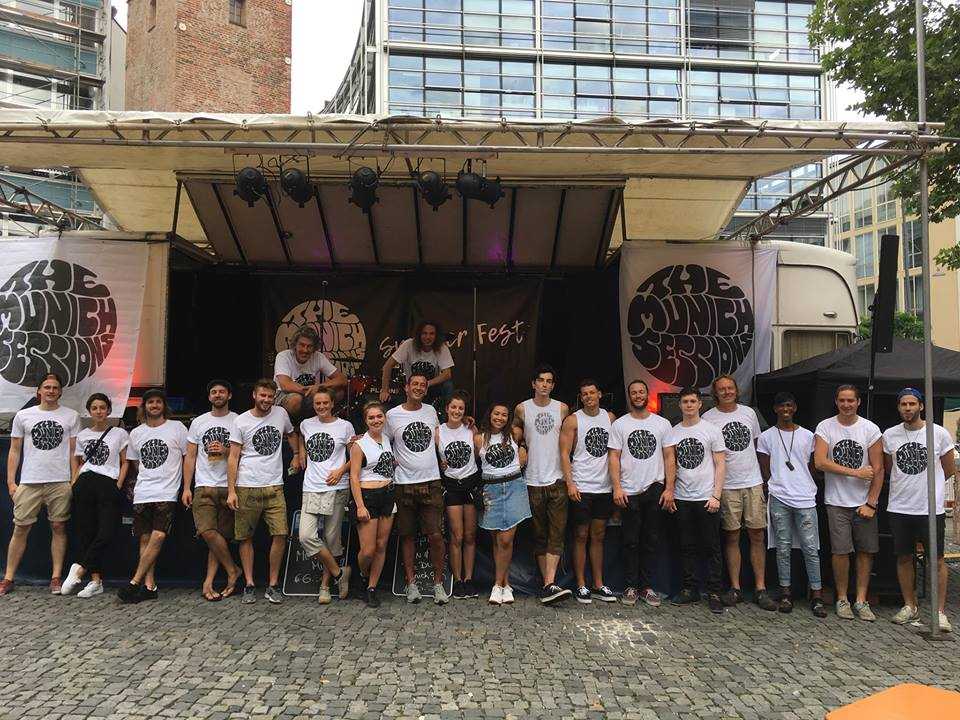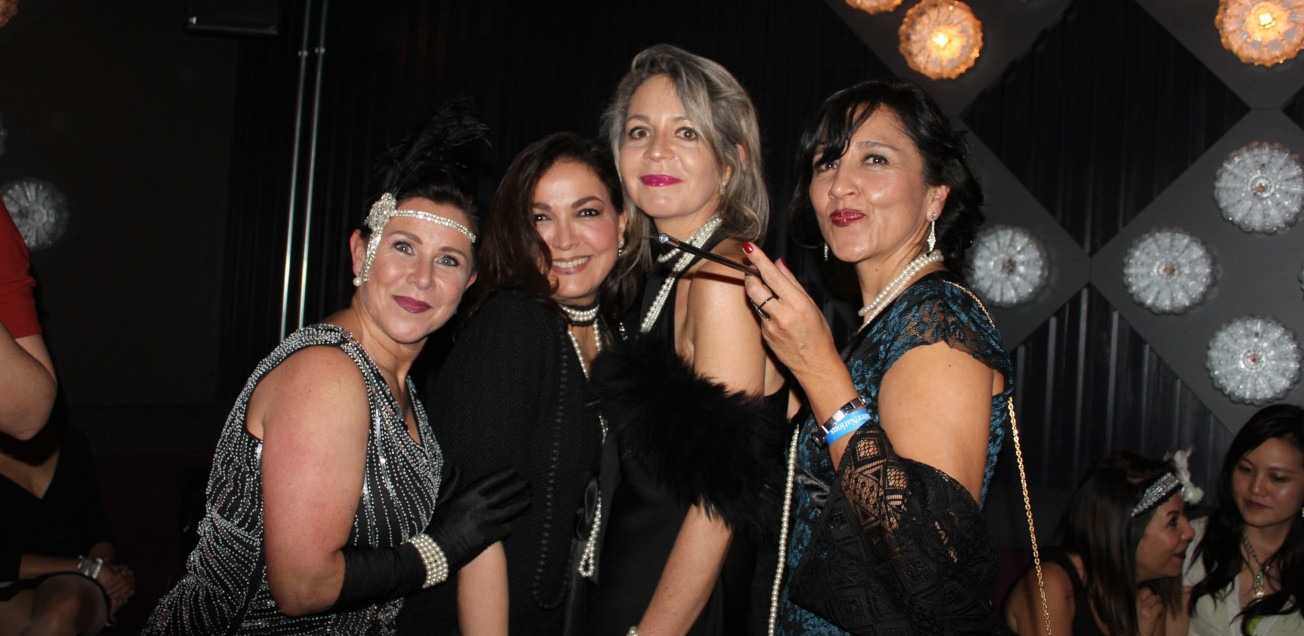Expat Entrepreneurs
Moving abroad can mean leaving behind a job or career. Faced with a new place, lack of local experience, and often language issues, a move can inspire you to try out things that seemed scary or impossible in the past. We talk to two entrepreneurs, Jackson and Michelle, whose expat experience inspired them to take a leap into the unknown.
Where are you from?
Jackson: Moree, NSW, Australia
Michelle: I was born in South Africa, but moved to England in the 50s as a young child.
Where did you move to and when?
Jackson: Munich, Germany
Michelle: Copenhagen, Denmark

Why did you move?
J: After having to abandon my plans to be a professional golfer due to a serious injury, I decided to explore the world. At just 18 years old, I sold everything, left Australia, and backpacked around the world. I came to Munich for Oktoberfest in 2003, fell in love with the city, and have been here ever since.
M: After a rather stressful time in my life when a relationship ended, I received an amazing job offer to act at the Mermaid Theatre in Copenhagen. It came at the perfect time in my life, and I didn’t hesitate to accept. Shortly after arriving in Copenhagen, I fell in love with an Englishman, who lived in Denmark.
Tell us about your business
J: Munich Sessions encompasses everything to do with music: the core of the business is live music events at venues across the city, but we’ve also branched out into production, festivals, and management.
M: HopeNow is an independent NGO in Denmark that focuses on human rights and empowerment. We disrupt human trafficking – modern day slavery – in all its forms, receiving a European Crime Prevention award in 2014. It’s not only Denmark: we are invited to speak as experts internationally and currently have an ongoing project in Kenya.
What inspired you to start this business?
J: Playing in all sorts of bands over the years, I’d built up many contacts, and a friend asked if I could get some bands together for a charity event. It was a great success and people were asking me: “Why don’t you do this more often?”. Though Munich has a pretty active music scene, there aren’t a lot of opportunities for unsigned artists. Giving talented musicians a space and chance to play is what drives me and the business today.

M: In 2003, I replied to an ad seeking people to work with foreign women in prostitution. Here I discovered a whole new type of challenge one can face as a foreigner in a new country. The women I met here had moved abroad because they were desperate to change their living situation, but their wish for a new life had been exploited. I knew I had to do more, and that’s when I founded HopeNow. I was inspired to seek justice for people who are stigmatized, marginalized, and criminalized in society.
Have you run your own business before?
J: No — I grew up working on farms, delivering pizza, working at golf shops, or in IT support. Anything that could pay the bills!
M: No — I’d had a diverse career doing everything from working as a teacher to acting and dancing.
What are the challenges of starting a business abroad?
J: Language is always a challenge — trying to navigate town council meetings in Bavarian after a mass or two of beer can be interesting. But what’s really tough is the tax structure for sole traders here in Munich. Pre-paying tax based on the previous year’s income can be really tough for a business that’s starting out, and I’d love to use that capital to grow my business instead. If I can navigate this barrier, I can move forward, grow my business, and hopefully hire my first employees.
M: It’s always a challenge to really understand the norms and values of a new culture. If you don’t, it’s easy to step in the spinach, as the Danes say – an expression for making a fool of yourself! Being an NGO, another challenge and top priority is fundraising, though we’re lucky to have an amazing group of volunteers. It’s also paramount to understand the legal and tax systems; you might think that business is the same everywhere, but it’s a “same same, but different” situation.
Advertisement
About Ro Mottershead
Ro works in the Content & Communications Department at InterNations. Determined to escape the rainy UK from a young age, she’s spent the past six years living, working, and writing her way around the world.
Article topics
Related articles
Global Career Mobility Needs a Gender Rethink
Women face unique challenges. InterNations member Leslie takes a look at how the conversation must evolve — and why working abroad matters.
An Educational Dilemma: Ups and Downs of Studying Abroad
Ready to compare the pros and cons of studying abroad? It’s not just about books, exams, or a degree — it is an adventure into the unknown! Uncover the challenges and benefits of being an international student.
Top 5 Reasons for Learning a New Language
There are many reasons why you would want to learn a new language, love is one of them but, of course, there are many more. Finding a meaningful reason to start learning a new language can be quite helpful to succeed in your learning journey.
Glitter, Tinsel, and Ugly Sweaters: December at InterNations
The holidays are just around the corner and for our communities it has been a month full of glitz and glamour. Ending the year in style, we’ve had everything from Great Gatsby-themed parties in Basel, to festive Santa bowling in Santiago de Chile. Let’s take a look at this December’s highlights!
Ten New Year’s Resolutions for Expats
With the beginning of a new year, thoughts of fresh starts, positive life choices, and self-improvement start running through our minds. Here are ten New Year’s resolutions you might want to try!




